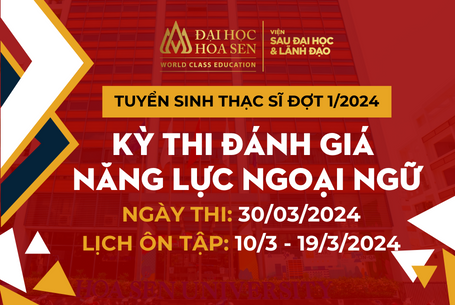English Language Teaching MA
The English Language Teaching MA programme bridges theoretical knowledge of language teaching and learning, with practical classroom experience. You will graduate with both the practical skills and advanced theoretical understanding to succeed as an English Language teacher at all levels, from primary and secondary schools to universities and English Language schools, both in the UK and overseas.
Throughout the course you will hone your theoretical and analytical abilities, examining research into language teaching and learning and its implications for educators. At the same time, you will have the opportunity to practise in the classroom and be encouraged to critically reflect upon your own technique and approach.
Our assessment methods are designed to enable you to develop a range of real-life skills, including writing lesson plans and rationales, carrying out microteaching to peers, and leading seminar discussions. You will also develop as an independent learner and acquire advanced research skills, with the chance to complete a dissertation exploring an area of personal or professional interest.
The English Language Teaching MA is a degree for those interested in becoming an English Language teacher. If you are a non-native English speaker and you would like to improve your English language skills, our dedicated Centre for English Language Learning (CELL) offers a range of courses.
Key features
- You can exit the course with a Postgraduate Diploma, Postgraduate Certificate or an Institutional Credit award depending on the credits you have successfully achieved.
- Study with an international cohort and benefit from cultural diversity in the classroom to enhance your understanding of English language teaching and learning worldwide.
- Boost your employability by gaining a theoretical awareness of issues and trends in English Language teaching, combined with the skills to teach English Language at the highest level.
- Our teaching team has a wide range of experience teaching in both the UK and abroad, as well as research expertise, ensuring that current trends inform the curriculum.
- Our graduates go on to successful careers as tutors, heads of study and university lecturers, both in the UK and overseas.
- Apply what you have learnt in class to real-world teaching by taking part in activities such as classroom observation at DMU’s Centre for English Language Learning and voluntary work opportunities in the local community.
- Join a community that fosters independent learners and encourages ongoing self-improvement through critical reflection on personal teaching practice. Students who demonstrate a high degree of teaching competence have the opportunity to be employed by the Centre for English Language Learning at DMU.
Structure and assessment
Course modules
Block 1: Teaching Receptive and Productive Skills
This module is designed to develop students’ understanding of the relevant theories and practices of teaching receptive and productive English language skills: listening, speaking, reading and writing. It will introduce students to some key research areas in teaching and learning the four skills, based on which students will learn how to write lesson plans for teaching these language skills in terms of teaching objectives, learning outcomes, and classroom activities.
This module helps students to analyse existing learning resources and acquire skills to develop and critically evaluate their own authentic teaching materials. These skills are directly applicable to their future classroom teaching.
Students will produce two lesson plans, including authentic teaching materials and designed exercises, and an essay providing the rationale for the lesson plans addressing how they are designed based on relevant language teaching and learning theories.
Block 2: Trends and Issues in English Language Teaching
This module introduces the main trends and issues in the communicative ELT classroom today. In particular, the module addresses the strengths and weaknesses of various teaching methods, together with topics such as teaching vocabulary, learner strategies, and using technology in the language classroom. As well as studying the theoretical knowledge, students also have opportunities to practise teaching in terms of writing lesson plans, conducting classroom instructions, eliciting student feedback, and using available equipment to enhance the learning environment. Students will gain the knowledge and skills needed to deliver successful lessons, and demonstrate critical and reflective thinking about their own and other’s teaching.
Students will prepare a lesson plan for a 15-minute lesson and deliver this lesson to their peers. Students will also produce a reflective journal in which they will critically evaluate the learning teaching theories and methods covered throughout the block, their experiences of teaching practice in class, and a rationale for, and evaluation of, their 15-minutes lesson.
Block 3: Language Processing and Assessment
This module consists of two parts which are related to language learning and teaching. The first part will introduce students to psycholinguistic knowledge of how language is processed in the brain, in terms of language comprehension and language production in oral and written forms. This theoretical basis will help students understand the cognitive processes that language learners go through when they are learning a second language. Building upon this knowledge of language processing, the second part of this module will shift to language assessment. Specifically, students will learn the key concepts of reliability and validity in language testing, and how these concepts are incorporated in language assessment by taking account of learners’ cognitive faculties. Knowledge of language processing and language assessment has a direct application to English language teaching and learning.
Students will give a 15-minute presentation discussing a chosen topic in psycholinguistics and designing and carrying out one or two activities afterwards on language learning among classmates. Students will also write an essay that applies a relevant psycholinguistic theory to English language assessment.
Block 4: Research Methods
The aim of this module is to gradually build up students’ research knowledge related to the ELT context. It starts with how to write a literature review by guiding students to synthesize, compare and evaluate different information sources in their reading. This is crucial for students to apply such knowledge to other areas in English language teaching/learning which they are interested in. Furthermore, the Research Methods module will enable students to understand the pros and cons of different research methods, and how they can be used individually or in combination to match the unique nature of the research. In addition, students will have opportunities to practise data collection among classmates and conduct some basic data analysis, both qualitatively and quantitatively. To help understand the learnt research knowledge, students will work in groups to develop and present their own research ideas. At the end of this module, students are required to produce a research proposal and apply for ethics approval which enables them to collect data for their dissertation.
Assessment is via a literature review (essay) and a research proposal.
Blocks 5 and 6: Dissertation
This module requires students to carry out and write a dissertation on a mini-scale independent research project based on their research proposal developed at the end of the Research Methods module. The topic should be related to English language teaching or learning, and may be developed from one of the taught modules; or may be linked to issues touched upon only peripherally in class.
Throughout the dissertation, students will need to apply what they have learnt in Research Methods to their own research context, especially problem solving and time-management. In their writing, students are expected to engage critically with both existing literature and their own study and anchor their research design and data analysis in a relevant theoretical framework. Students should also show their ability to interpret their findings within a wider context.
Note: All modules are indicative and based on the current academic session. Course information is correct at the time of publication and is subject to review. Exact modules may, therefore, vary for your intake in order to keep content current. If there are changes to your course we will
















